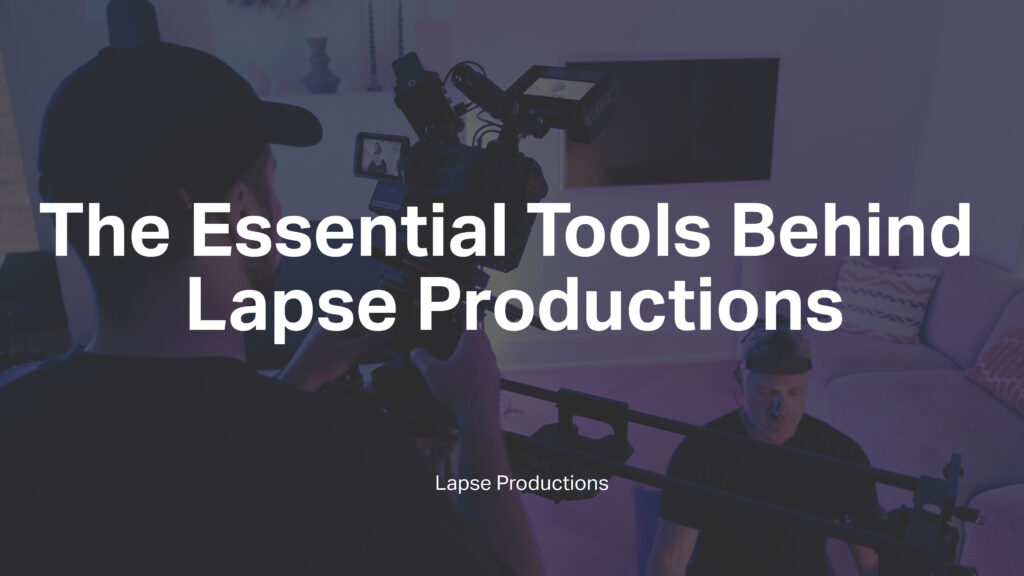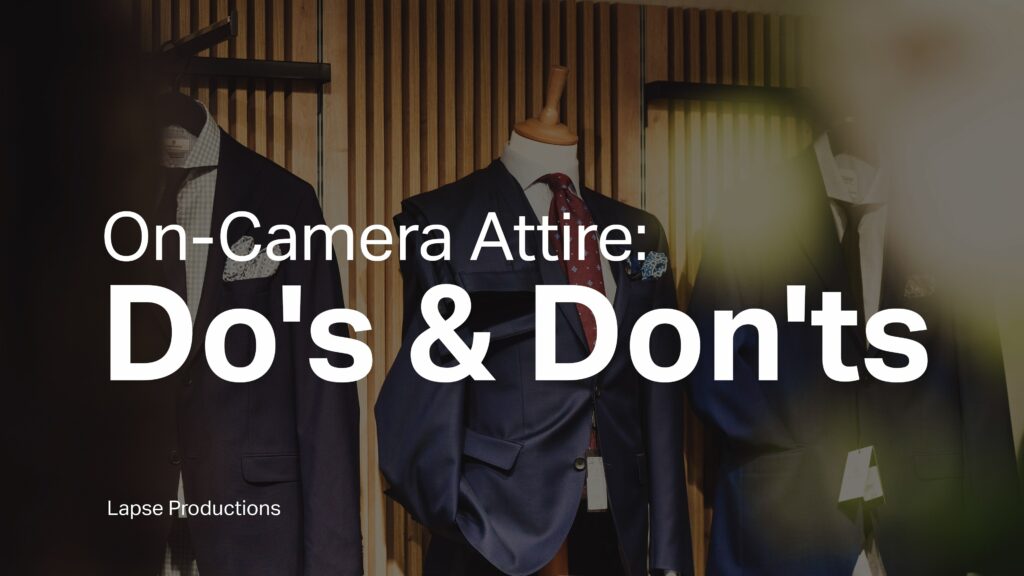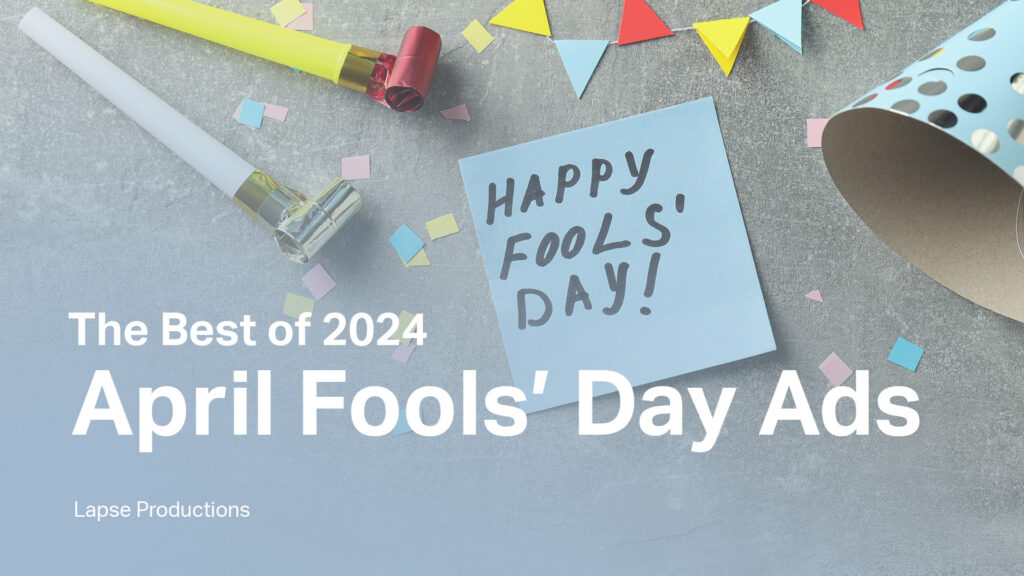Introduction
In the fast-evolving digital era, the video production industry is witnessing a transformative shift with the introduction of artificial intelligence (AI) technologies like Sora. These innovations promise to redefine content creation by overcoming traditional limitations and enhancing creativity. However, they also pose significant challenges, including job displacement and ethical concerns. Today, Lapse Productions will explore the impact of AI in video production, highlighting both its potential benefits and the hurdles it presents.
- Introduction
- Enhanced Content Creation:
- AI as a Creative Tool:
- Cost-Effective:
- AI Fatigue:
- Impact on Industry Professionals:
- Algorithm Challenges and Regulatory Responses:
- Ownership and Copyright Issues:
- 1. Leveraging AI as a Complementary Tool:
- 2. Upskilling and Reskilling:
- 3. Redefining Value Propositions:
- 4. Advocating for Favorable Legal Frameworks:
- Conclusion
Watch our Video Podcast Discussion on Sora AI and the Future of Video Production
In this Creatives Grab Coffee episode, the hosts discuss the introduction of AI in video production and its potential benefits and drawbacks. They explore how AI can streamline processes, lower costs, and enhance creativity by allowing for the inclusion of more B-roll content and the creation of different camera angles. However, they also discuss the potential negative impact on job opportunities, pricing, and competition in the industry. The hosts highlight the importance of AI fatigue and the challenges of replicating real people and moments. They also consider the potential need for legislation to address AI-generated video and its impact on misinformation campaigns. The conversation explores the implications and challenges of AI-generated content in video production. It discusses concerns about user perception, organic reach, and the efforts of social media platforms to identify AI content. Legal implications, ownership, and copyright of AI-generated content are also examined. The conversation delves into the potential for AI to enhance existing footage and the need for real people in video content. It explores the challenges of identifying AI-generated content and the potential shift in budget allocation. The conversation concludes with speculation on the future of AI-generated content and the importance of adaptation and navigation in the changing landscape.
What is Sora AI?
Sora is an AI developed by OpenAI capable of creating videos from text prompts. It generates realistic and imaginative scenes, simulating the physical world in motion. This model, designed to assist creative professionals, can produce videos up to a minute long with high visual quality. OpenAI aims to innovate in video content creation by understanding and simulating real-world interactions through Sora, demonstrating its commitment to pushing the boundaries of AI capabilities in creative fields.
For more detailed information, visit OpenAI’s Sora page.
Just for context, here is where Text to Video AI was about 1 year ago (2023):
The Good:
Enhanced Content Creation:
The ability to generate video content on-demand can revolutionize how production companies approach their projects, particularly in scenarios where time, budget, or practical constraints limit traditional filming. This capability not only fills gaps but also elevates the quality and creativity of the output by enabling the creation of cinematic footage that would otherwise be impossible or prohibitively expensive to film.
AI as a Creative Tool:
There is an argument to be made that the shift to AI generated content is a natural progression in the evolution of video production. Just as the industry has embraced various technologies to enhance the realism or aesthetic appeal of video content, AI can be seen as another tool in the arsenal, expanding the creative possibilities.
Cost-Effective:
The ability to generate multiple video drafts without additional costs can significantly reduce production budgets and offer greater flexibility in experimenting with different tones or styles without the logistical and financial constraints.
The Bad:
AI Fatigue:
The observation that AI-generated content may quickly become recognizable and potentially lose its initial appeal highlights a critical challenge. The industry must stay ahead of this curve by continuously innovating to maintain the novelty and effectiveness of AI-generated content.
Impact on Industry Professionals:
The potential reduction or elimination of roles for voice-over artists, stock footage creators, audio houses, animators, and even full production crews is a significant concern. This shift could lead to job displacement and necessitate a reevaluation of skill sets and roles within the industry. With regards to production houses, the risk of clients choosing to bypass production companies and create content in-house using AI tools could disrupt traditional business models and client-producer relationships. This shift may require production companies to redefine their value proposition and emphasize aspects of their service that AI cannot replicate.
Algorithm Challenges and Regulatory Responses:
As we navigate the benefits and drawbacks of AI in video production, it’s crucial to address the ethical and societal implications, particularly the risk of AI-generated ‘fake news’. This phenomenon underscores the need for transparent content creation practices. It is anticipated that legislation will soon require content creators and businesses to clearly label AI-generated videos with disclaimers. This step aims to maintain transparency and trust with audiences, ensuring consumers are aware when the content they’re viewing was produced by AI. Furthermore, the response from social media platforms is another area of concern. Given their influence on public opinion and the dissemination of information, there’s a growing movement towards stricter content policies. These platforms may reduce the visibility of AI-generated content or even impose bans to safeguard against misinformation. Such measures highlight the delicate balance between leveraging AI for innovation and the ethical responsibility to prevent its misuse.
Broader Implications:
Ownership and Copyright Issues:
The concern about AI companies retaining ownership or imposing restrictions on the use of AI-generated content is a crucial consideration, especially in corporate contexts where exclusive ownership and copyright are paramount. This aspect could limit the adoption of AI technologies unless clear, favorable terms are established.
Moving Forward:
The video production industry is on the cusp of a transformative shift with the advent of video-to-text AI technologies like Sora. While these innovations offer remarkable opportunities for creativity, efficiency, and cost reduction, they also pose significant challenges related to job displacement, the evolving nature of AI content, and legal and ethical considerations around ownership and copyright.
To navigate this landscape, production companies will need to adapt by:
1. Leveraging AI as a Complementary Tool:
- Emphasizing the creative and technical expertise that professionals bring to the table, which AI cannot replicate.
2. Upskilling and Reskilling:
- Encouraging industry professionals to adapt to new roles and technologies, ensuring they remain valuable in an AI-augmented landscape.
3. Redefining Value Propositions:
- Highlighting unique services, such as creative direction, strategy, and human touch, that production companies offer beyond what AI can achieve.
4. Advocating for Favorable Legal Frameworks:
- Engaging in dialogue with AI technology providers and legislators to ensure that the use of AI in video production aligns with the industry’s needs and ethical standards.
The future of video production, influenced by technologies like Sora, will be shaped by how well the industry can integrate these tools while addressing the challenges and capitalizing on the opportunities they present.
Conclusion
The integration of AI technologies like Sora into video production represents a balance of opportunities and challenges. While AI offers the potential to revolutionize content creation and streamline production processes, it also raises concerns about job security and ethical implications. The future of the industry will depend on how we navigate these issues, leveraging AI to complement rather than replace human creativity. As we move forward, embracing AI as a tool for innovation will be key to redefining the boundaries of video storytelling.
If you are interested in learning more please reach out to us in the contact form below!
Let’s Create Your Video Today
If you’re looking for top-notch quality, industry expertise, dependability, and competitive pricing, don’t wait any longer. Contact us now for a quote and let’s get started on your project.









